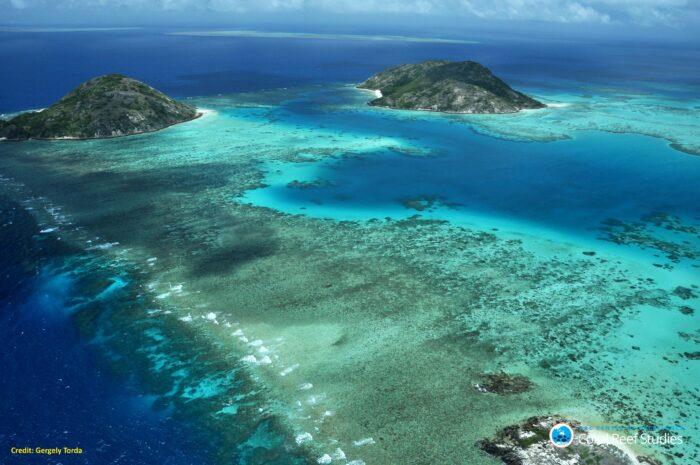
New strategies for saving the Great Barrier Reef
by ARC Centre of Excellence for Coral Reef Studies 25 Mar 2022 23:18 UTC

New strategies for saving the Great Barrier Reef © ARC Centre of Excellence for Coral Reef Studies
Researchers working with stakeholders in the Great Barrier Reef region have come up with ideas on how groups responsible for looking after the reef can operate more effectively when the next bleaching event arrives.
Dr Michele Barnes is a Senior Research Fellow at James Cook University's Centre of Excellence for Coral Reef Studies. She said in 2016 and 2017 the reef experienced unprecedented back-to-back mass coral bleaching - challenging its guardians' abilities to protect it.
"Our collaborative research was squarely aimed at improving governance responses to extreme climate events in the GBR region and potentially other regions around the world," said Dr Barnes.
The team interviewed 32 key individuals representing government, non-profits, research institutions, and the tourism, fishing, and aquaculture industries. The organisations deal with coral health, water quality, tourism and fishing.
"We wanted to understand catalysts and barriers to actions being taken across the region in response to coral bleaching, and participants' hopes for future action," said Dr Barnes.
The researchers found five major categories of activity for those involved in the wake of coral bleaching: assessing the scale and extent of bleaching, sharing information, communicating bleaching to the public, building local resilience, and addressing global threats.
"These actions were helped and hindered by a range of factors. For instance, some people were hindered in responding because information on the bleaching was scattered and not well integrated, there were conflicts and a lack of respect across certain groups, and community involvement was lacking in some cases" said co-author Amber Datta, a PhD candidate based at James Cook University and the University of Montana.
Working with a group of local stakeholders in the Great Barrier Reef, the team identified several ways to improve responses to future crises. These improvements include improving coordination, strengthening relationships between groups, and empowering and recognizing Traditional Owners as leaders of their Sea Country rather than stakeholders (see attached graphic for more details).
Dr. Barnes said "The new approaches should help to improve responses to future crisis events, but effective responses will depend on the willingness of diverse groups to negotiate a shared path forward, and ultimately on international and national commitments to address the root cause of climate change".
Paper
Barnes M.L., Datta A., Morris S., Zethoven I. 2022. 'Navigating climate crises in the Great Barrier Reef'. Global Environmental Change. DOI: 10.1016/j.gloenvcha.2022.102494